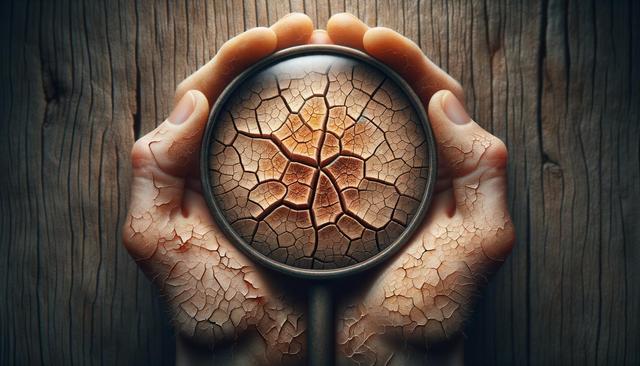Common Causes Behind Itchy Skin
Itchy skin, also known as pruritus, can arise from a wide range of causes, making it important to understand what might be behind the discomfort. Environmental factors, such as dry air or exposure to irritants, often play a key role. However, internal causes like hormonal changes, age-related skin conditions, and certain medical issues may also be responsible. For instance, many people experience itchy skin after shower due to hot water stripping away natural oils, leaving the skin dehydrated. Additionally, some individuals might discover that certain soaps or detergents trigger irritation.
In order to better understand this condition, it’s helpful to Discover 10 Reasons Your Skin Itches, which often includes:
- Dry weather or excessive bathing
- Allergic reactions to skincare products
- Hormonal changes during menopause
- Underlying conditions like eczema or psoriasis
- Medication side effects
- Skin infections
- Chronic renal or liver disease
- Nutritional deficiencies
- Stress or anxiety
- Skin aging in seniors
Recognizing the cause is the first step toward finding an effective itchy skin treatment and causes that are personalized to individual needs.
Itchy Skin in Seniors: A Common Concern
As we age, our skin undergoes several changes that can lead to increased sensitivity and dryness. Itchy skin in seniors is a particularly widespread issue, often due to the skin’s reduced ability to retain moisture. This dryness can result in persistent irritation, especially in colder months or in environments with low humidity. Additionally, circulation changes and the thinning of the epidermis contribute to discomfort and a compromised skin barrier.
Other contributing factors for itchy skin in older adults include:
- Use of multiple medications
- Chronic health conditions like diabetes or kidney disease
- Decreased natural oil production
- Reduced immune function
Good skincare routines can help alleviate much of this discomfort. Applying fragrance-free moisturizers regularly and using gentle, hydrating cleansers are effective ways to support skin health. In some cases, medical consultation may be necessary to identify underlying causes and develop a suitable treatment plan.
Hormonal Changes and Itchy Skin During Menopause
Itchy skin during menopause is another common but often overlooked symptom. Hormonal fluctuations, especially the decline of estrogen, significantly impact the skin’s elasticity and moisture balance. This can lead to increased dryness and sensitivity, particularly on the arms, legs, and face. The skin may also become thinner, making it more prone to irritation from environmental factors or personal care products.
For managing itchy skin menopause symptoms, women can benefit from a few key lifestyle changes:
- Incorporate omega-3 fatty acids into the diet
- Use moisturizing creams containing hyaluronic acid or ceramides
- Limit hot showers and opt for lukewarm water
- Wear soft, breathable fabrics
These strategies can provide relief while supporting overall skin health during this transitional period. It’s also advisable to consult a healthcare provider to rule out other potential causes and receive tailored guidance.
Why Itchy Skin Often Follows a Shower
Experiencing itchy skin after shower is more common than many realize. While a shower is meant to cleanse and refresh, certain habits can inadvertently strip the skin of its natural moisture barrier. Hot water, in particular, can cause the skin to dry out quickly. Additionally, harsh soaps and aggressive scrubbing can lead to irritation and inflammation.
To minimize post-shower itchiness, consider the following tips:
- Keep showers short (under 10 minutes)
- Use lukewarm water instead of hot
- Choose gentle, fragrance-free cleansers
- Pat skin dry with a soft towel instead of rubbing
- Apply moisturizer immediately after drying off
Implementing these practices can help soothe the skin and maintain its protective barrier. If symptoms persist, it may be worth exploring underlying causes or allergies that could be contributing to the irritation.
Managing Nighttime Itching and When to Seek Help
Itchy skin at night can be particularly frustrating, often interfering with sleep and overall well-being. This nighttime itch, also known as nocturnal pruritus, may be intensified by the body’s natural rhythms. At night, the skin loses more water, and blood flow increases, which can heighten itch sensations. Those seeking a remedy for itchy skin at night should first focus on creating a calming bedtime routine and ensuring optimal skin hydration before sleep.
Some practical solutions include:
- Applying a thick moisturizer or ointment before bed
- Using a cool mist humidifier in the bedroom
- Wearing loose, breathable clothing
- Keeping the bedroom cool and well-ventilated
If these steps don’t alleviate the symptoms, or if the itching is accompanied by other signs like rashes, swelling, or redness, it’s important to consult a healthcare provider. Understanding itchy skin symptoms and prevention strategies is key to avoiding more serious complications and ensuring restful sleep.
Conclusion: Taking Control of Your Skin Health
Whether you’re dealing with age-related dryness, menopausal changes, or simply itchy skin after shower, understanding the root causes is essential for effective management. From dry climates to hormonal fluctuations, the triggers are varied—but so are the solutions. By learning about itchy skin treatment and causes, and addressing them with appropriate skincare routines and lifestyle adjustments, relief is within reach. If persistent itching disrupts daily life or sleep, seeking professional advice can help identify underlying conditions and offer tailored solutions. Prioritizing skin health is not just about comfort—it’s a vital part of overall well-being.




Leave a Reply